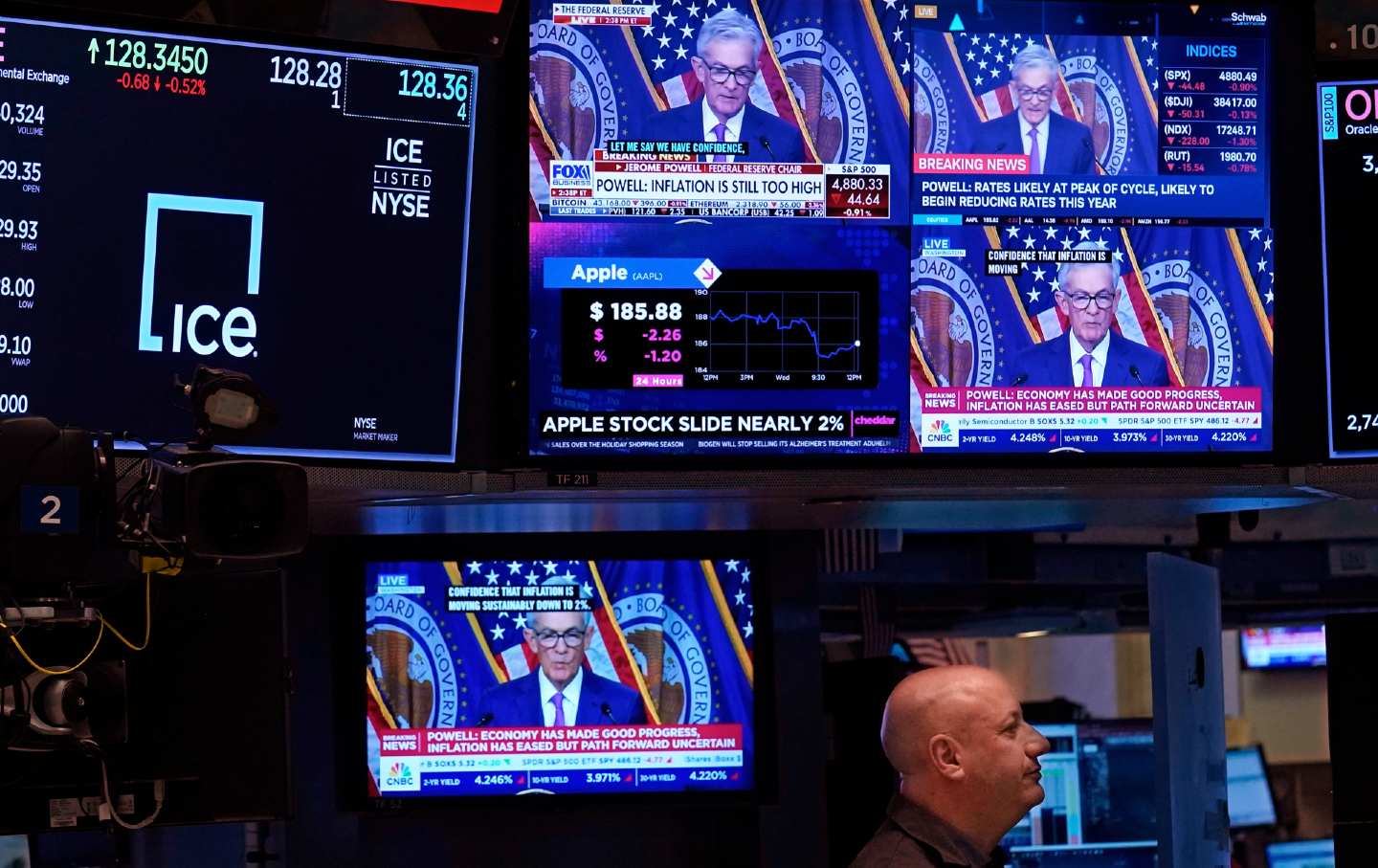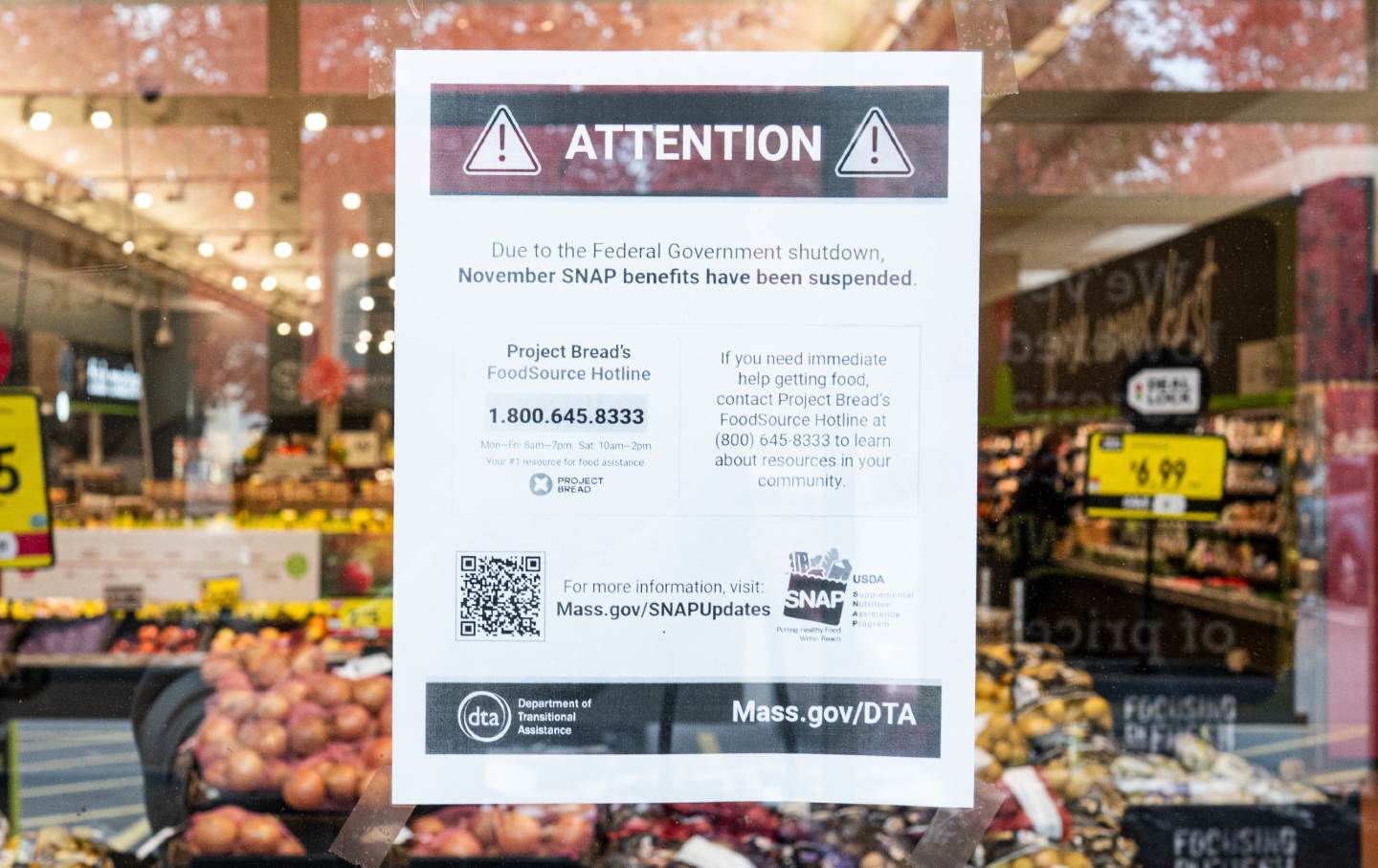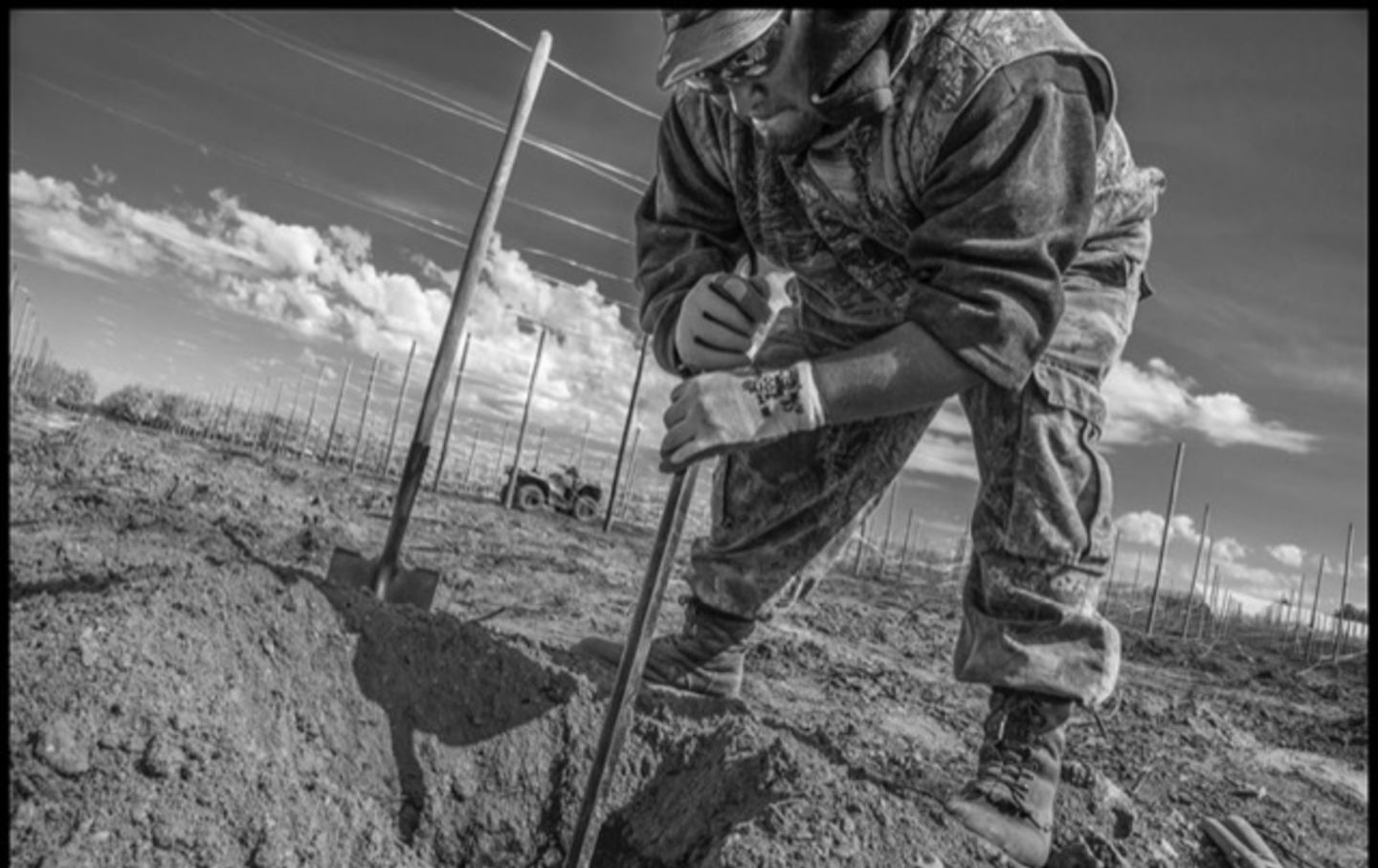Do People Think the Economy Is Bad Because the Media Failed, or Because the Economy Is Actually Bad?
Two experts look at the data come to very different conclusions about the state of the US economy.

Media Failure
Back in the 1990s, when Republicans and even many Democrats were looking to cut and/or privatize Social Security, the standard wisdom was that if you wanted to be taken seriously, you had to acknowledge that Social Security was facing a crisis. Even many progressives who supported the program repeated that line.
Social Security, of course, was not in a crisis, and it was important to say that to beat back the privatizers. We are seeing much the same story today, as when The Washington Post lectured us in a recent editorial headlined “Telling Americans the Economy Is Good Won’t Work.”
Well, the economy is good, and we should not be shy about saying that. To be clear, we still have tens of millions of people who are struggling to make ends meet and who sometimes can’t. This, however, is a structural issue that will take time to overcome and is a near-impossible task with a divided Congress.
Like many progressive economists, I view the unemployment rate as the single most important measure of the health of the economy. By this measure, the economy is doing great. We have seen 28 consecutive months of below 4 percent unemployment, beating the streak in the late 1960s boom. This is extraordinary—and something almost no one would have considered possible when Joe Biden took office.
Unemployment is a big deal, not least because in an economy where most people depend on their wages for the bulk of their income, those who don’t have a job are screwed. But the benefits of low unemployment go well beyond simply putting more people on a payroll.
In a tight labor market, workers have more bargaining power, especially those at the bottom end of the wage distribution. We have seen that during this recovery. The real wage (inflation-adjusted) for workers in the bottom decile of the wage distribution rose by 12.1 percent from 2019 to 2023—and this was following decades of stagnation.
Low unemployment allows workers from groups that face discrimination in the labor market to get opportunities they otherwise never would have had. In this recovery, we have seen the lowest unemployment rates ever for Black Americans and Hispanic Americans. The wage gap between Black and white workers has also fallen to a record low.
A strong labor market also means that people can escape bad jobs. In late 2021, tens of millions of workers left their jobs for better ones, and by 2022, workers reported the highest rate of job satisfaction ever.
This good news has barely been a blip in the media’s reporting on the economy. Instead, there have been endless stories about people being hit hard by inflation, often highlighting situations where the size of the hit is implausibly large. The reporting rarely points out that much of the inflation was a result of the pandemic and that nearly every other wealthy country took a comparable hit. This is like reporting on a housing shortage in the aftermath of a hurricane and not mentioning what destroyed the housing stock.
Now that inflation has fallen back to its pre-pandemic pace by some measures, much of the media has chosen to highlight the absurd expectation that prices will go back down. Prices will not fall back to where they were four years ago, because nominal wages have risen by 22 percent. Anyone who expected prices to fall following the high inflation of the 1970s would have been rightly treated as a kook, not featured prominently in news stories on the state of the economy.
We also keep hearing about invented crises, as when CNN decided to spotlight the retirement crisis at a time when most near-retirees have never been better prepared for retirement. And there is the perceived tragedy of young people never being able to own a home, even though their ownership rates are above pre-pandemic levels. And The New York Times just told us that recent college grads can’t find jobs, when their unemployment rate has returned to pre-pandemic levels.
We rarely hear about the 14 million homeowners who refinanced their mortgages between 2020 and 2022, most of whom are now saving thousands of dollars in annual interest.
One final point: No one is telling people that they are wrong about their own financial situation. People have negative views on the economy in general, but surveys find that people say they are doing pretty well themselves. Their negative views of the economy stem from the fact that they believe others are doing poorly. When we tell these people that the economy is good, we are just telling them that everyone else is doing as well as they are.
In short, we should stick with the data, not the pundits. Given the political and practical constraints that President Biden has faced, the economy is good—even excellent. We should be repeating that over and over again.
Dean Baker
Actually Bad
If you listen to a certain type of economist, you’ve probably heard the good news: The economy is doing amazing. They believe that what pundits and journalists should do now is just convince people that this is true. And judging by their metrics, the economy does look pretty good. GDP is up. Unemployment is low. Inflation has moderated. Wages have kept pace with prices.
You’d think Americans would feel good about the economy, but in a May 2024 Pew poll, only 23 percent of US adults rated the economy positively. This is partly because how someone judges the economy depends on what they think “the economy” is and what it is supposed to do. There is no inherent reason that people’s evaluation of the economy must align with the preferred metrics of economists. Given the unusual circumstances of recent years, some people may have rightly come to understand the economy in a new way.
The upheaval of the pandemic created an opportunity to revise our economic priorities and our sense of what is possible. It revealed that there is more to “the economy” than the GDP. Americans saw the government quickly implement massive new programs, even if imperfectly, to fight a pandemic and long-standing problems like poverty. For a moment, it felt like we wouldn’t just rescue the old economy; we would, to borrow a phrase, build back better.
Popular
“swipe left below to view more authors”Swipe →The pandemic safety net provided cash assistance to families, protected tenants from eviction, supported unemployed workers, expanded food benefits, provided free school lunches, increased Medicaid rolls, paused student loan repayments, and supplied free Covid-19 tests, treatments, and vaccines. As a result, the number of Americans in poverty fell from 38.3 million in 2019 to 25.6 million in 2021.
Then, piece by piece, Washington dismantled this expanded welfare system. At the height of Covid’s Delta wave in September 2021, the government threw 7.5 million workers off of unemployment benefits. Three weeks later, federal tax credits for paid sick leave ended. As the Omicron wave took off in December 2021, 36 million families lost their monthly child allowance. In 2022, poverty bounced back to its pre-pandemic “normal,” while food insecurity increased to the highest rate since 2014. By 2023, monthly evictions had returned to their old rates, and the number of people experiencing homelessness reached its highest level since counting began in 2007. Over the past year and a half, 16 million households lost their expanded food benefits; 22.8 million people were disenrolled from Medicaid; and 28 million holders of student loan debt were instructed to resume payments.
Moreover, Covid is still making millions sick, causing people to miss work and incur medical expenses, and placing a heavy burden on those who cannot afford to get infected.
Rising real wages among the lowest-wage workers is a highlight of the recovery, but that too is diminished when considered in the context of the pandemic. In September 2020, Biden tweeted support for a $15 federal minimum wage, writing, “It’s not enough to just thank our essential workers—we need to pay them.”
The Biden administration raised expectations, and then workers didn’t get the $15 minimum wage. By May 2023, 25 percent of US workers earned less than $15 an hour in inflation-adjusted 2020 dollars, according to Bureau of Labor Statistics data, with 10 percent of workers—more than 15 million people—earning less than the 2020 equivalent of $12 an hour.
Aspects of the pandemic response pointed toward a better economy and society. These programs showed that poverty and financial hardship in America are choices. But for all its demonstrated effectiveness and potential, the pandemic response turned out to be a blip—the termination of which no one is apparently supposed to complain about.
Last November, a White House official was quoted by Politico as saying, “The right comparisons to think about are really, how does the social safety net compare to before the president took office, and how do people’s economic experience and level of economic security compare to what they were experiencing pre-pandemic.” The 15 million people who fell into poverty in 2022 probably take little comfort in imagining how things might have been worse for them in 2019. The millions of lower- and middle-income families struggling with the higher costs of groceries, gas, utilities, and rent probably miss what Biden called the “breathing room” afforded by pandemic social programs.
So on the question of how the economy is doing: Yes, the standard metrics look good. But there is also the question of what kind of economy. By disassembling the pandemic welfare state, the government pushed millions of people into a more precarious position even if they’re employed, and even if their wages kept up with inflation. To many people, it feels like the economy went backward—and they’re right.
Wesley Bignell
Disobey authoritarians, support The Nation
Over the past year you’ve read Nation writers like Elie Mystal, Kaveh Akbar, John Nichols, Joan Walsh, Bryce Covert, Dave Zirin, Jeet Heer, Michael T. Klare, Katha Pollitt, Amy Littlefield, Gregg Gonsalves, and Sasha Abramsky take on the Trump family’s corruption, set the record straight about Robert F. Kennedy Jr.’s catastrophic Make America Healthy Again movement, survey the fallout and human cost of the DOGE wrecking ball, anticipate the Supreme Court’s dangerous antidemocratic rulings, and amplify successful tactics of resistance on the streets and in Congress.
We publish these stories because when members of our communities are being abducted, household debt is climbing, and AI data centers are causing water and electricity shortages, we have a duty as journalists to do all we can to inform the public.
In 2026, our aim is to do more than ever before—but we need your support to make that happen.
Through December 31, a generous donor will match all donations up to $75,000. That means that your contribution will be doubled, dollar for dollar. If we hit the full match, we’ll be starting 2026 with $150,000 to invest in the stories that impact real people’s lives—the kinds of stories that billionaire-owned, corporate-backed outlets aren’t covering.
With your support, our team will publish major stories that the president and his allies won’t want you to read. We’ll cover the emerging military-tech industrial complex and matters of war, peace, and surveillance, as well as the affordability crisis, hunger, housing, healthcare, the environment, attacks on reproductive rights, and much more. At the same time, we’ll imagine alternatives to Trumpian rule and uplift efforts to create a better world, here and now.
While your gift has twice the impact, I’m asking you to support The Nation with a donation today. You’ll empower the journalists, editors, and fact-checkers best equipped to hold this authoritarian administration to account.
I hope you won’t miss this moment—donate to The Nation today.
Onward,
Katrina vanden Heuvel
Editor and publisher, The Nation
More from The Nation

One Buyout After Another One Buyout After Another
The multibillion-dollar takeover bids targeting Warner Bros. Discovery show how Trump’s corrupt model of governance-by-payback could destroy Hollywood.

The Grim Spectacle of Trump’s Gaudy Saudi Summit The Grim Spectacle of Trump’s Gaudy Saudi Summit
A weeklong debauch brought together tech insiders and the leaders of a brutal monarchy to keep stoking the AI bubble.

What Does Lina Khan’s Trust-Busting Mean for New York City? What Does Lina Khan’s Trust-Busting Mean for New York City?
Under-scrutinized monopolies—like the fire truck oligopoly—hinder municipal functions.

A Brief History of Right-Wing Attacks on Food Stamps A Brief History of Right-Wing Attacks on Food Stamps
A trip through The Nation’s archives offers essential insights into why Republicans have long tried to weaken SNAP—and why they’re trying to kill it now.

Trump Has Just Condemned More Americans to Hunger Trump Has Just Condemned More Americans to Hunger
The administration’s decision to fast-track a bunch of changes to food stamps—including new work requirements—is as stupid as it is cruel.

Trump Drops the Hammer on Farmworkers Trump Drops the Hammer on Farmworkers
At the end of the season, he cuts wages of 400,000 workers by a third.


